Astronomy
-
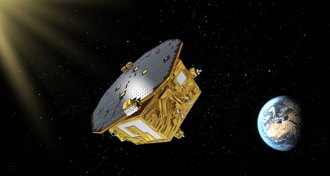 Astronomy
AstronomyLISA Pathfinder to pave way for gravitational wave detection
The successful launch of the LISA Pathfinder mission marks the first step toward testing techniques needed to build a space-based gravitational-wave detector.
-
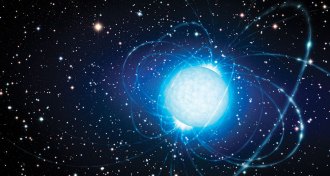 Astronomy
AstronomyMysterious cosmic signals carry a clue to their origins
A burst of radio waves from another galaxy ran into a dense magnetized plasma while en route to Earth, hinting at an origin near a population of young stars.
-
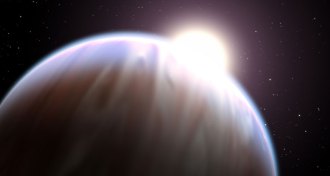 Astronomy
AstronomySuper-Earths, meet superpuffs, a lighter weight class of planet
Superpuffs are underweight, oversized planets that formed in outskirts of star systems before cuddling up close to their sun.
-
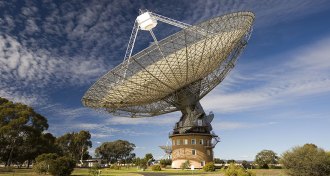 Astronomy
AstronomyMore mysterious extragalactic signals detected
Five more fast radio bursts from other galaxies have shown up and one of them is a double.
-
 Astronomy
AstronomyCosmic rays maintain their mystery
Cosmic rays come from all over the universe, including some places we’re not so sure about.
-
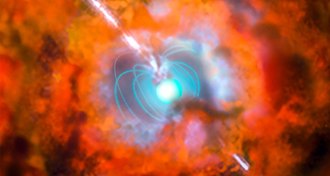 Astronomy
AstronomyEarly stars found swirling in the Milky Way center
Ancient stars with low iron abundance surround the Milky Way’s center.
-
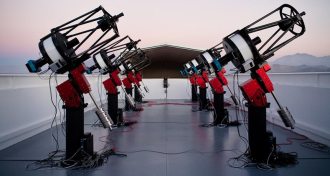 Astronomy
AstronomyChile telescope array spots nearby Earth-sized planet
The discovery of GJ 1132b, the nearest Earth-sized planet known beyond the solar system, could herald the era of probing the atmospheres of nearby worlds for signs of life.
By Andrew Grant -
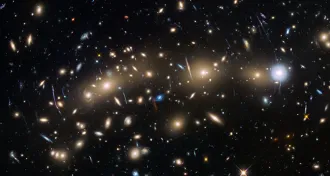 Astronomy
AstronomyNearby galaxies put a lens on hundreds of distant ones
Cache of faint galaxies in early universe discovered with help from massive galaxy clusters a bit closer to home.
-
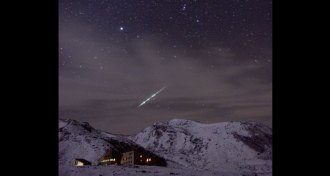 Astronomy
Astronomy‘Halloween fireballs’ may light up the night sky
Trick-or-treaters might get treated to a meteor swarm for Halloween.
-
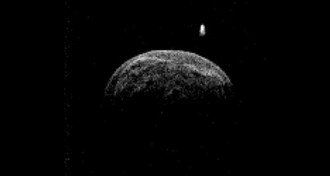 Planetary Science
Planetary ScienceAsteroid set for Halloween flyby
Large asteroid will pass Earth just beyond the moon’s orbit on Halloween.
-
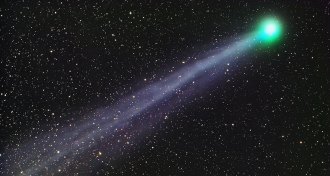 Astronomy
AstronomyComet carries alcohol, sugar
Sugar and alcohol are just two of the ingredients that go into making a comet.
-
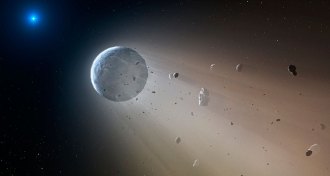 Astronomy
AstronomyWhite dwarf upsets planetary system, consumes evidence
Rocky planets are disintegrating around a white dwarf, the core of a dead star.